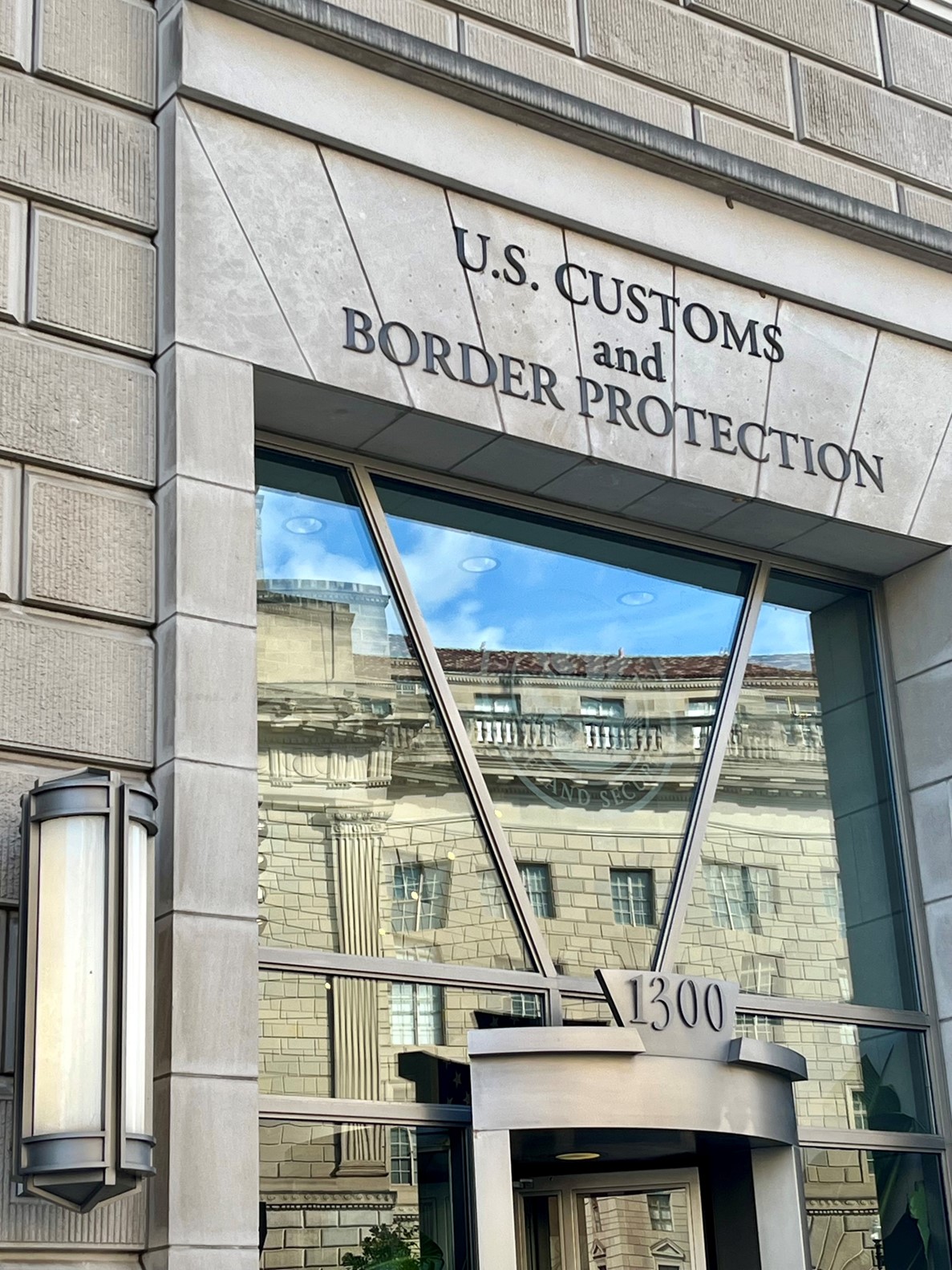Wildlife Trade in Limbo? What a Federal Shutdown Means for Your Business.
What You Need to Know
Key takeaway #1
Wildlife inspectors and law enforcement at ports remain operational, so inspections and clearances of wildlife shipments will continue.
Key takeaway #2
CITES, ESA, Migratory Bird Treaty Act, and Wild Bird Conservation Act permits are not being processed—expect delays for these documents.
Key takeaway #3
Import/export licenses for commercial wildlife trade and port exception permits are still being issued; online systems remain but expect slower response times and limited emergency support.
Key takeaway #4
USDA-APHIS animal and plant import/export permitting continues as normal, but other USDA services may be limited.
Client Alert | 4 min read | 10.03.25
What Happened?
As of midnight on September 29, 2025, the U.S. government has entered a shutdown, triggering furloughs across many agencies that regulate the import and export of wildlife and wildlife products. For businesses and organizations engaged in international wildlife trade, this development raises urgent questions about inspections, permitting, and compliance. These delays impact not only entities engaged in the transfer of live animals but also companies involved in selling products in brick-and-mortar stores as well as e-commerce online stores, covering everything from food, jewelry, skincare and cosmetics to art supplies, home décor and furniture – many of which contain imported or exported wildlife products.
While essential law enforcement and inspection activities at ports of entry will largely continue, many permitting and administrative functions are suspended, and delays should be expected across the board. In this alert, we break down how the shutdown affects the key agencies—U.S. Fish and Wildlife Service (USFWS), the U.S. Department of Agriculture’s Animal and Plant Health Inspection Service (USDA-APHIS), Customs and Border Protection (CBP) and others—that oversee wildlife shipments.
Wildlife Trade: What Stays Open, What Shuts Down
Fish and Wildlife Service
For companies engaged in the international trade of wildlife and wildlife products, the most immediate impact of the shutdown is the suspension of permit processing for protected species. While core customs inspection and enforcement functions are maintained, businesses should anticipate delays for any trade requiring federal permits under the Convention on International Trade in Endangered Species of Wild Fauna and Flora (CITES) or similar statutes.
During this federal government shutdown, USFWS which regulates international wildlife trade into and out of the United States is operating under contingency plans that prioritize essential functions. USFWS’s Office of Law Enforcement remains fully operational, meaning wildlife inspectors continue to inspect and clear shipments at designated ports of entry as usual. Import/export licenses for commercial importers and exporters, as well as Designated Port Exception permits, are still being issued, and electronic declaration systems remain available. However, USFWS’s permitting division is experiencing furloughs—with only minimal staff available to address emergencies. Critically, programs responsible for issuing permits under the Migratory Bird Treaty Act, Wild Bird Conservation Act, Endangered Species Act, and CITES are suspended, so no new permits will be processed during the shutdown. See USFWS Contingency Plan.
Customs and Border Protection
 CBP and the Department of Homeland Security personnel are mostly considered “essential” and will maintain cargo inspections at over 300 ports of entry, also ensuring that the flow of legal wildlife and wildlife products shipments, while undergoing scrutiny, is not disrupted. CBP’s non-essential support functions and back-office activities, however, are furloughed, potentially leading to delays in audits, refunds, and ruling requests. See Department of Homeland Security’s Procedures Related to a Lapse In Appropriations.
CBP and the Department of Homeland Security personnel are mostly considered “essential” and will maintain cargo inspections at over 300 ports of entry, also ensuring that the flow of legal wildlife and wildlife products shipments, while undergoing scrutiny, is not disrupted. CBP’s non-essential support functions and back-office activities, however, are furloughed, potentially leading to delays in audits, refunds, and ruling requests. See Department of Homeland Security’s Procedures Related to a Lapse In Appropriations.
In summary, while core border inspection and enforcement activities persist, businesses should expect significant delays and suspensions in permitting and regulatory processes, particularly for CITES and other conservation-related permits, until the government reopens.
Department of Agriculture’s Animal and Plant Health Inspection Service
USDA-APHIS will continue animal import and export permitting, as these activities are funded by user fees rather than annual congressional appropriations. This means that importers and exporters of animal products can expect continued service for permitting and quarantine inspections. APHIS will also continue the issuance of phytosanitary certifications.
Emergency animal and plant health programs, as well as border surveillance, remain active, but routine inspections and certain regulatory programs are paused as those functions rely solely on appropriated funds and may be suspended; the agency, however, has been operating with a reduced workforce overall even before the shutdown. See USDA’s Lapse of Funding Plan.
Department of Commerce
According to the Department of Commerce’s contingency plan, the Department’s National Marine Fisheries Service (NMFS) will “continue to provide ... select security and related oversight functions and law enforcement activities, including those for the protection of marine fisheries; fisheries management activities including quota monitoring, observer activities, and regulatory actions to prevent overfishing.” Essentially, NFMS will continue monitoring trust resources under the Magnuson-Stevens Fishery Conservation and Management Act, Marine Mammal Protection Act, the ESA and other authorities to avoid irreparable harm to U.S. fisheries or protected species
Also, within the Department of Commerce, some International Trade Administration activities— especially those related to national security and trade policy negotiations, will continue. However, most other activities, including certain antidumping and countervailing duty investigations, will be suspended due to reduced staffing and budget.
Conclusion: Navigating Wildlife Trade Amidst Federal Shutdown Uncertainty
As the federal government shutdown unfolds, businesses engaged in the international trade of wildlife and wildlife products face a patchwork of operational challenges. While essential trade and critical inspection and enforcement functions at ports remain active, permitting functions for protected species under CITES, ESA, and related statutes are suspended, with delays expected until normal agency operations resume, which will inevitably slow the movement of goods and create compliance hurdles. Companies should anticipate delays, monitor agency updates closely, and build flexibility into their logistics and supply chains. Proactive communication with agency contacts, careful documentation, and contingency planning will be essential to minimize disruptions. Ultimately, the longer the shutdown, the greater the risk of backlogs, disruptions, and shifting agency priorities.
Crowell will continue to monitor developments and provide updates as the federal government shutdown situation evolves.


Contacts
Insights
Client Alert | 4 min read | 02.20.26
SCOTUS Holds IEEPA Tariffs Unlawful
On February 20, 2026, the Supreme Court issued a pivotal ruling in Trump v. V.O.S. Selections, negating the President’s ability to impose tariffs under IEEPA. The case stemmed from President Trump’s invocation of IEEPA to levy tariffs on imports from Canada, Mexico, China, and other countries, citing national emergencies. Challengers argued—and the Court agreed—that IEEPA does not delegate tariff authority to the President. The power to tariff is vested in Congress by the Constitution and cannot be delegated to the President absent express authority from Congress.
Client Alert | 7 min read | 02.20.26
Section 5949 Proposed Rule Puts the FAR Council's Chips on the Table
Client Alert | 5 min read | 02.20.26
Trump Administration Pursues MFN Pricing for Prescription Drugs
Client Alert | 4 min read | 02.19.26
Proposed NY Legislation May Mean Potential Criminal Charges for Unlicensed Crypto Firms





